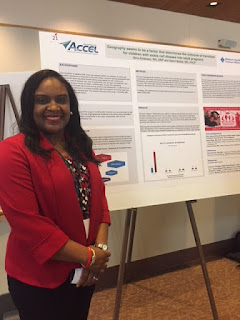 As you know transition of persons with complex chronic medical conditions is dear to my heart. I can remember like it was yesterday one of my young adult patients lay lifeless in the local ER who we we unable to transition into an adult sickle cell program. From that point, I always asked myself -what went wrong? Why wasn't he able to articulate with the ER staff information about his condition and to call Marian Anderson Comprehensive Sickle Cell Center for the doctors to obtain specialty recommendations for providing care for crisis in other complications in the ER. Also,these outcomes were around the time when the New England Journal, 1995 published research findings on Hydroxyurea. Studies found that sickle cell crisis and acute chest were cut in half and became a game changer in the mid-nineties for sickle cell population. Moreover, Philadelphia, PA and Atlanta, GA both have Comprehensive Adult Sickle Cell programs.
As you know transition of persons with complex chronic medical conditions is dear to my heart. I can remember like it was yesterday one of my young adult patients lay lifeless in the local ER who we we unable to transition into an adult sickle cell program. From that point, I always asked myself -what went wrong? Why wasn't he able to articulate with the ER staff information about his condition and to call Marian Anderson Comprehensive Sickle Cell Center for the doctors to obtain specialty recommendations for providing care for crisis in other complications in the ER. Also,these outcomes were around the time when the New England Journal, 1995 published research findings on Hydroxyurea. Studies found that sickle cell crisis and acute chest were cut in half and became a game changer in the mid-nineties for sickle cell population. Moreover, Philadelphia, PA and Atlanta, GA both have Comprehensive Adult Sickle Cell programs. I truly believe more research and public policy initiatives (Delaware Complex Chronic Disease Task Force) need to be launched as these tender-aged young adults need intensive wrap around services as they continue to grow and mature. The other probing question is, What is the best age to transition? I would say around 25-26 years of age. I know the pediatric community/hematologists probably disagree. Butt children's brains are not fully developed until 25 years of age. So why do we expect them to act like adults? All the best, Dr. Nina
TOVA Health
Primary Specialty Care
213 Greenhill Ave
Wilmington, DE 19805
(302) 429-5870 ext. 120
www.tovacommunityhealth.org







